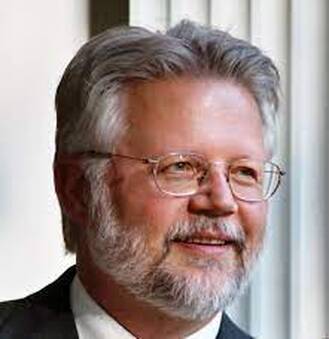These recordings are not to be downloaded
David Sampson's
Morning Music
(1986)
David Sampson has emerged as one of the truly unique voices of his generation.

He was Composer-in-Residence with the Colonial Symphony Orchestra from 1998 through 2007. He was a recipient of a 2014 New Jersey State Council on the Arts Individual Artist Fellowship.
David Sampson has received major grants from the NEA, American Academy of Arts and Letters, Chamber Music America, Barlow Endowment, New Jersey State Council on the Arts, Jerome Foundation, Cary Trust, and the Dodge Foundation, among others.
To Read More @ David Sampson Composer Tap HERE
David Sampson has received major grants from the NEA, American Academy of Arts and Letters, Chamber Music America, Barlow Endowment, New Jersey State Council on the Arts, Jerome Foundation, Cary Trust, and the Dodge Foundation, among others.
To Read More @ David Sampson Composer Tap HERE
David Sampson's
Morning Music
1986
Composed in memory of his brother
William Evan Sampson
(23 January 1948 - 03 November 1979)
This March 16, 1991 St. Cloud, MN Annapolis Brass Quintet performance of
Morning Music by David Sampson was recorded by Minnesota Public Radio.
The ABQ 1991:
Robert Suggs, trumpet;
David Cran, trumpet;
Sharon Tiebert, horn;
Wayne Wells, trombone;
Robert Posten, bass trombone.
To listen Tap > Below
(There may be a 10 to 20 second pause before sound begins.)
Morning Music
1986
Composed in memory of his brother
William Evan Sampson
(23 January 1948 - 03 November 1979)
This March 16, 1991 St. Cloud, MN Annapolis Brass Quintet performance of
Morning Music by David Sampson was recorded by Minnesota Public Radio.
The ABQ 1991:
Robert Suggs, trumpet;
David Cran, trumpet;
Sharon Tiebert, horn;
Wayne Wells, trombone;
Robert Posten, bass trombone.
To listen Tap > Below
(There may be a 10 to 20 second pause before sound begins.)
About the Work: Morning Music for brass quintet
Description by Joseph Stevenson
Description by Joseph Stevenson
David Sampson's 1986 Morning Music is a highly personal work, a sequel to his 1981 woodwind quintet named In Memorium: W.E.S. Thus, both are part of the emotional aftermath of the 1979 murder of the composer¹s brother by the Ku Klux Klan and American Nazis.
Morning Music is a twelve-minute piece in one movement. It expresses the composer's continuing anguish, but unlike the earlier work it allows a feeling of strength to emerge from the despair and grief. It ends with a fast coda. Sampson dedicated the score to his mother, "whose optimism and resiliency have been an inspiration to me."
Morning Music is a twelve-minute piece in one movement. It expresses the composer's continuing anguish, but unlike the earlier work it allows a feeling of strength to emerge from the despair and grief. It ends with a fast coda. Sampson dedicated the score to his mother, "whose optimism and resiliency have been an inspiration to me."
C. Warren Kellerhouse served as composer/arranger with the U.S. Naval Academy Band along with three future founding members of the Annapolis Brass Quintet.
This swinging arrangement of
Billy Boy
was written by C. Warren Kellerhouse
for the Annapolis Brass Quintet.
To listen to this ABQ performance of Billy Boy
Tap > Below
This swinging arrangement of
Billy Boy
was written by C. Warren Kellerhouse
for the Annapolis Brass Quintet.
To listen to this ABQ performance of Billy Boy
Tap > Below
FOSTERING BRASS CHAMBER MUSIC
The score and parts for David Sampson's Morning Music for brass quintet and C. Warren Kellerhouse's arrangement of Billy Boy, along with the entire ABQ music library, are available for research and performance from the Oberlin Conservatory of Music.
For direct access to the Annapolis Brass Quintet Special Collection @ Oberlin
Tap Here
The score and parts for David Sampson's Morning Music for brass quintet and C. Warren Kellerhouse's arrangement of Billy Boy, along with the entire ABQ music library, are available for research and performance from the Oberlin Conservatory of Music.
For direct access to the Annapolis Brass Quintet Special Collection @ Oberlin
Tap Here
